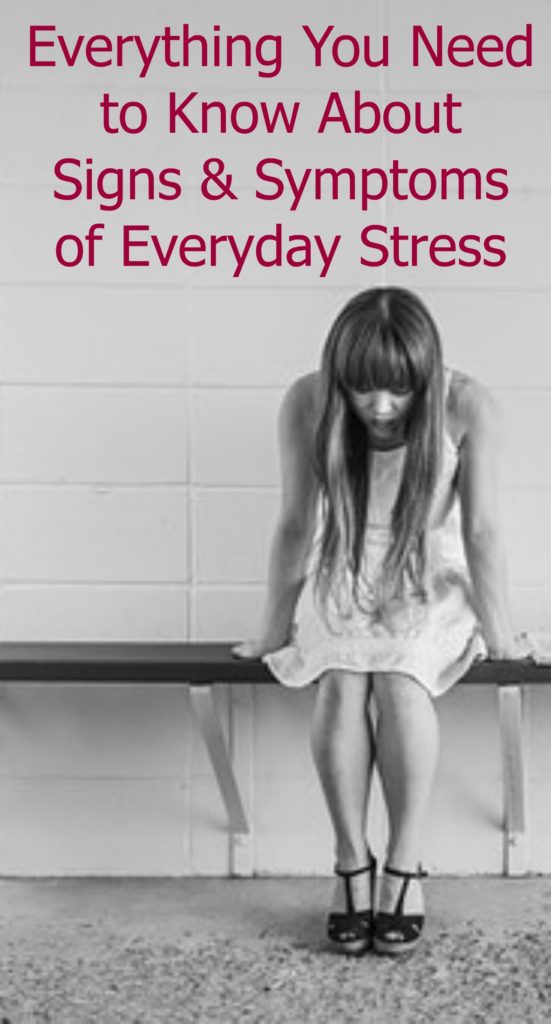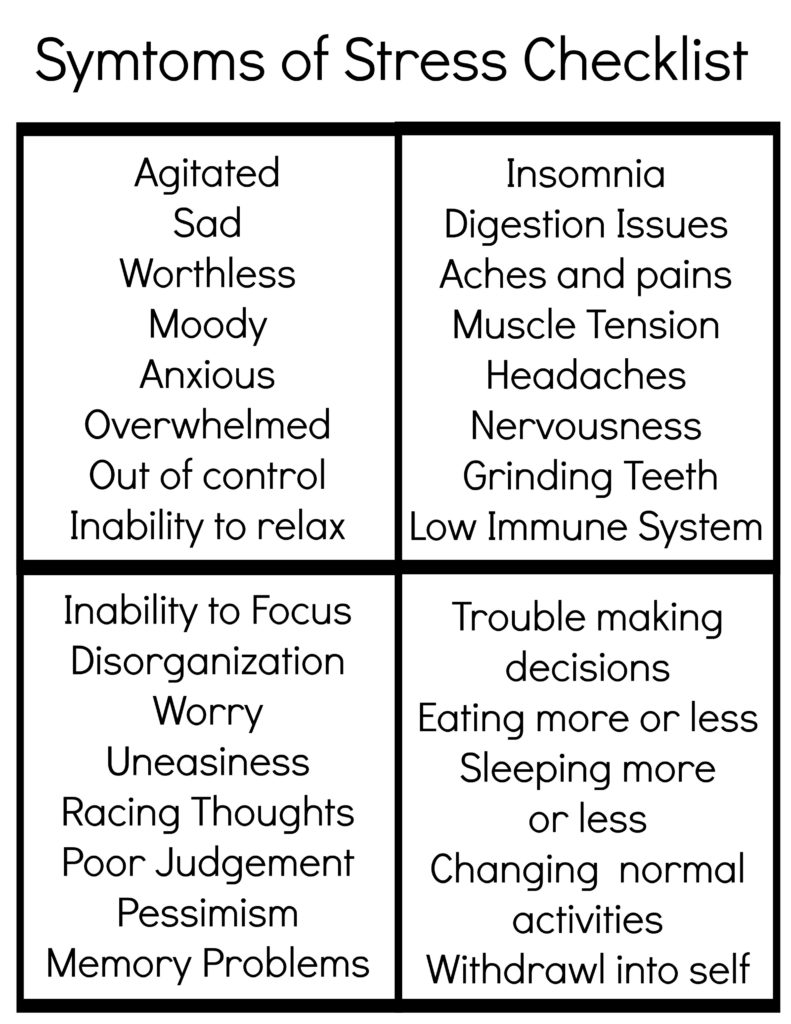Stress is unavoidable in this world. People have their own limits and their own tolerances but it affects us all. Some people function well in high stress jobs and others can barely manage day-to-day life. Stress is also relative to individuals and situations. For example, a person who has a mostly comfortable and happy life might find that their stress levels rise considerably with something like an error in a restaurant order or the cancellation of a beauty appointment. Others who live in stressful situations as a lifestyle may consider these things trivial as they deal with neighborhood violence or inability to afford utilities and food. You may fall in between these two extremes where you are dealing with a “normal” amount of problems and the typical stresses of everyday life like parenting, working and juggling responsibilities. Regardless of your situation, you are likely experiencing stress that could be negatively impacting you, causing physical, emotional and behavioral symptoms. Here is everything you need to know about everyday stress.

Signs & Symptoms
Emotional symptoms of stress include:
- Depression: feeling sad or worthless
- Becoming easily agitated, frustrated, and moody
- Feeling overwhelmed and out of control
- Having difficulty relaxing or calming down
- Feeling bad about yourself
- Avoiding others
- Anxiety and agitation
- Feeling overwhelmed or unable to get a grip on the things that are bothering you
- Loneliness and isolation
Physical symptoms of stress include:
- Tired and listless
- Headaches and neck-aches
- Digestions problems, nausea, stomach pain
- General aches and pains that are unexplained
- Tense muscles, clenching muscles in fists, face and shoulders
- Chest pain and elevated heartbeat
- Inability fall asleep or restless sleep
- Frequently sick with viruses and infections
- Loss of sexual desire and/or ability
- Nervousness, shaking and other symptoms of a panic attack
- Clenched jaw and grinding teeth
Cognitive symptoms of stress include:
- Thoughts or feeling that something bad will happen
- Feeling generally uneasy and worrying
- Racing thoughts and feeling panicky
- Forgetfulness and disorganization
- Inability to focus or concentrate
- Poor judgment
- Being pessimistic or only able to see the negative in things
- Memory problems
Behavioral Symptoms of stress include:
- Feeling unable to control decisions
- Changing or ignoring important normal activities
- Unable to participate in enjoyable or pleasurable activities
- Ignoring personal hygiene
- Not cleaning personal space
- Eating more or less
- Sleeping too much or too little
- Withdrawing from others
- Procrastinating or neglecting responsibilities
- Using alcohol, cigarettes, or drugs to relax, perhaps to the point where you need to visit a treatment center for help
- Nervous habits (e.g. nail biting, pacing, fidgeting)
Here is a checklist of general symptoms that people with stress often experience. How many of these do you have?

There is a list of the top ten stressors in life including Death of a Close Family Member, Marriage and Loss of a Job. I feel like adding that list to this post is not relevant. Whatever you are dealing with that is causing you stress is what matters right now. Not what other people think are stressful. We can not compare our feeling and situations to anyone else’s. Often people who are suffering from stress become depressed and they begin to convince themselves that they do not have the right to feel stressed out when other’s might be worse off than them. Sadly, there will always be many people who have it “worse” than you. They have to learn how to face and manage their stress just as you have to deal with yours. It is not a matter of comparison.

Another common issue with stress is that people tell themselves that they should learn to be stronger. They might believe that the proven ways to work through stress are pointless or will not work for them personally. This is also a characteristic of how stress affects our thinking, perceptions and mood.

If you do exhibit signs of stress and you are ready to learn how to get better keep reading. If you are discouraged and think that you can not change your situation right now, keep reading as well.
Here are things that you can do to alleviate stress. Some are big steps with massive changes and outcomes. Some are small steps to take toward self-care and accepting more positive feelings into your daily life.
- do things that you enjoy to increase good feelings
- do things you are good at to help strengthen your confidence
- do something new to create a diversion and take a mental break
- even when you don’t want to, go out and be social
- even when you don’t want to, clean & organize your living space
- even if you are too tired, take a bath or shower and get dressed each day
- Sleep when you need to so that you get at least 8 hours in a 24 hour day
- Eat healthier, drink more water and take a multi vitamin
- If you can get outside in the fresh air and sunlight, do it
- watch movies and shows that are comedies to bring out a smile
- do not watch movies that make you feel bad in any way
- get online and find a support group and go there, or join one online
- make lists of your specific symptoms and next to them, solutions that might help to lessen them
- read books that can help you make positive changes in your life
- if you are truly depressed, be brave enough to admit it and get some help to get through these tough times. Call your doctor or check for resources
- do not give up. It can be discouraging to try and find help or to do things to make yourself stronger but you can do it
- Take action toward anything positive and healing, don’t let yourself burnout
- Some people find that natural supplements help ease stress and improve mood. Speak to your doctor about what might work for you. Be certain to get clear information about dosing. Things like St. John’s wort from Gaia Herbs are often used in the natural health community. Plus, in recent years, CBD products have also soared in popularity. With brands like Gold Bee offering a wide variety of stress-relieving CBD-infused products, there has never been so much choice.
There may NOT be a way to remove the thing that is causing you stress, but there are ways to deal with the symptoms and improve your mood to help balance things out.

What are your stresses and what strategies help you to alleviate them.

